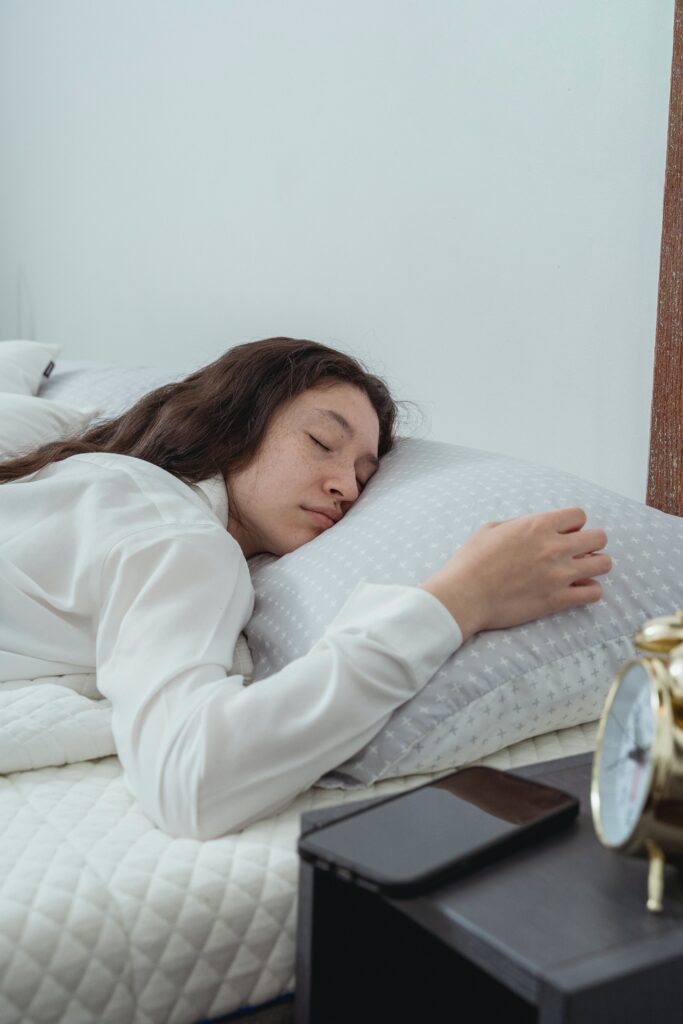Often relegated to an afterthought in our busy lives, sleep is not merely a period of inactivity or downtime. It is a crucial and active state that optimizes our mental and physical health, fortifies our ability to think, remember, learn, grow and even heal.
Sleep fine-tunes the brain connections that underpin intelligence, creativity and problem-solving skills.
Moreover, it plays a pivotal role in regulating mood and combating mental health disorders like depression and anxiety. Neglecting quality sleep does not only lead to grogginess but can exacerbate serious health issues such as obesity, cardiovascular disease and lowered immune function.

Unraveling Common Issues Affecting Sleep Quality
Sleep quality can be beleaguered by myriad factors — ranging from lifestyle habits to underlying physiological conditions.
The proliferation of digital screens, for instance, has been associated with delayed sleep onset due to pervasive light exposure which suppresses melatonin production — a hormone integral for sleep regulation.
Other lifestyle choices like excessive caffeine consumption or irregular sleeping schedules can severely disrupt our internal body clock (circadian rhythm), leading to unsatisfactory rest.
Additionally, common sleep disorders such as insomnia (persistent difficulty falling asleep), sleep apnea (interrupted breathing during slumber) or restless leg syndrome (compulsive leg movement) can critically impair one’s quality of life.
Purpose of this Guide: A Roadmap for Superior Slumber
This comprehensive guide illuminates the fascinating realm of sleep science while pinpointing actionable strategies that can significantly enhance your rest patterns – ultimately fortifying overall health and boosting daily productivity levels.
Whether you are grappling with chronic insomnia or simply seeking ways to optimize your nightly rest routines – this guide is designed to unravel the enigma of sleep and equip you with the knowledge and tools indispensable for achieving restorative, quality sleep.
By understanding and addressing common sleep roadblocks, assimilating healthy habits, and fostering optimal sleeping environments — this guide aims to empower every reader with the priceless gift of superior slumber.
Understanding Sleep: A Complex Symphony of Biological Rhythms
The act of sleep, often perceived as a simple and mundane process, is in fact an intricate symphony orchestrated by our brain and body. To fully appreciate the ways in which we can improve our sleep, it’s essential to delve into the science that underpins this nightly routine.
The Science Behind Sleep: A Necessity for Life
Sleep is one of our most vital physiological processes. It’s a complex cyclical phenomenon that involves numerous brain structures, neural circuits, and chemicals that influence its onset, maintenance, and termination.
While we rest during the night, our bodies are hard at work performing various functions such as tissue repair and memory consolidation.
Sleep Stages and Cycles: A Journey Through the Night
Sleep consists of multiple stages divided into two broad types – Rapid Eye Movement (REM) sleep and Non-Rapid Eye Movement (NREM) sleep. The latter is further divided into three stages known as N1, N2, and N3 or slow-wave sleep. Each stage has its unique characteristics and roles ranging from promoting physical recovery to fostering cognitive function.
Master Regulator: The Role of Melatonin and Other Hormones in Sleep
One key contributor to our sleep-wake cycle is melatonin—a hormone produced by the pineal gland in response to darkness. This “sleep hormone” signals your body it’s time to rest.
Other hormones also involved include cortisol which usually decreases at night allowing us to relax; growth hormones vital for tissue repair are predominantly released during deep slow-wave sleep.
Circadian Rhythm: Nature’s Inbuilt Clock
Our internal biological clock or circadian rhythm regulates when we feel alert or sleepy over a 24-hour period – typically causing us to feel most alert during daylight hours and sleepiest during the night.
This rhythm is influenced by light exposure, with artificial light at night potentially disrupting sleep patterns.
The Consequences of Compromised Sleep: A Holistic View
The value of sleep extends far beyond banishing under-eye circles; consistent deprivation can have significant implications for our health and wellbeing, not only physically but also mentally.
Physical Health Problems Associated with Poor Sleep
Chronic sleep deprivation is linked to numerous physical health problems, including cardiovascular disease, obesity, diabetes, impaired immune function and even shortened lifespan.
Insufficient rest impairs the body’s ability to regulate essential functions such as glucose metabolism and blood pressure.
Mental Health and The Impact of Inadequate Rest
On the mental health front, lack of quality sleep is associated with heightened risk for mood disorders like depression and anxiety. It can impair cognition leading to issues in concentration and memory retention.
Additionally, chronic insomnia often coexists with serious psychiatric conditions underscoring a complex interplay between sleep and mental health.
Sleep Hygiene: Establishing Healthy Habits
A Consistent Bedtime Routine: The Cornerstone of Good Sleep
The concept of a consistent bedtime routine may evoke images of childhood, but its importance extends well into adulthood. Consistency helps to regulate your body’s internal clock, otherwise known as the circadian rhythm.
This biological process responds to light and dark cues, managing your feelings of wakefulness during the day and sleepiness at night. By establishing a regular sleep schedule, you align your circadian rhythm with your daily activities, promoting quality rest and alertness in waking hours.
Bedtime Routines and Mental Health: A Symbiotic Relationship
A consistent sleep schedule not only promotes better sleep but also plays a pivotal role in maintaining mental health. Research has shown that disruptions to the circadian rhythm can lead to mental health issues such as anxiety and depression.
On the other hand, regular quality sleep can help manage stress levels, improve memory recall and cognitive function – all critical components for optimal mental wellbeing.
Creating an Optimal Sleep Environment: More than Just Comfortable
The importance of creating an ideal environment for sound slumber cannot be overstated. This involves more than merely ensuring physical comfort; it encompasses various elements such as lighting, temperature control, noise reduction.
Light plays a significant role in regulating our sleep-wake cycle where darkness signals the production of melatonin, inducing slumber. Hence an optimal sleeping environment should be dark or have minimal light exposure.
Temperature too influences our rest; studies suggest that cooler room temperatures facilitate better quality slumber. Eliminating noise disturbances is vital as they can disrupt our sleep cycle leading to fatigue.
Choosing Your Sleep Sanctuary Essentials: The Right Mattress, Mattress Top and Pillow
Investing time in selecting the right mattress and pillow is a critical component of sleep hygiene. A good mattress should not only provide comfort but also offer adequate support for your spine.
A mattress topq especially memory foam mattress topers can play a significant role in providing the right level of comfort and support for your body while you sleep. The top layer of a mattress is responsible for cushioning your body and relieving pressure points.
This is especially important for those who suffer from back pain, as a mattress top can help distribute weight evenly and reduce strain on the spine. It also plays a vital role in regulating body temperature, as a top layer made of breathable materials can promote airflow and prevent overheating.
The right pillow, on the other hand, should maintain a neutral alignment—keeping the head squarely over the shoulders to avoid placing stress on your neck and spine.
While personal preference plays a part in these selections, considerations such as firmness and material can greatly impact sleep quality.
Dietary Habits: Your Menu for Better Sleep
What we consume has a significant influence on our sleep habits. Certain foods like almonds, kiwi, tart cherries or fatty fish are rich in melatonin and encourage a good night’s rest.
Moreover, complex carbohydrates found in whole grains aid in producing more serotonin – a neurotransmitter that helps regulate sleep.
Caffeine, Alcohol, Nicotine: The Sleep Thieves
While certain dietary habits promote better slumber, others can rob you of it. Substances such as caffeine and nicotine are stimulants that keep you alert and disrupt your sleep cycle when consumed close to bedtime.
Alcohol too may initially induce drowsiness but ultimately fragments your night’s rest by causing frequent awakenings and lessened REM (Rapid Eye Movement) sleep – an essential stage of deep restorative sleep.
Managing Stress for Better Sleep
The Intricate Dance of Stress and Restfulness
Stress, an omnipresent factor in our fast-paced lives, wields a profound influence on the quality and quantity of our sleep. The relationship between stress and sleep is one of reciprocity – each significantly impacts the other.
When we are confronted with stressors – whether they be related to work, relationships, or health – our bodies respond by activating the ‘fight or flight’ response.
This response floods our systems with stress hormones like cortisol and adrenaline which keep us alert and vigilant, thereby disrupting our ability to fall asleep or maintain a restful sleep. However, it’s not all pessimistic news.
We can harness this understanding of the relationship between stress and sleep to encourage better rest. There are a multitude of techniques available for managing stress in order to cultivate superior sleep habits.
Conclusion
To conclude, enhancing your sleep quality isn’t merely relegated to adjusting physical factors; it’s also about harmonising your inner emotional landscape.
Remember that small changes can lead to significant improvements over time – every step towards better sleep hygiene contributes positively towards your overall health. In this intricate dance between day-to-day activities, mental well-being, and achieving the elusive perfect night’s rest – knowledge is power.
By understanding more about how various elements impact your rest patterns – from dietary choices to bedtime routines to managing stress – you are arming yourself with tools necessary for improving your nighttime slumber.
So here’s an optimistic spin: consider these challenges not as insurmountable hurdles but as opportunities for growth that will ultimately lead you toward improved wellness – night by night.






